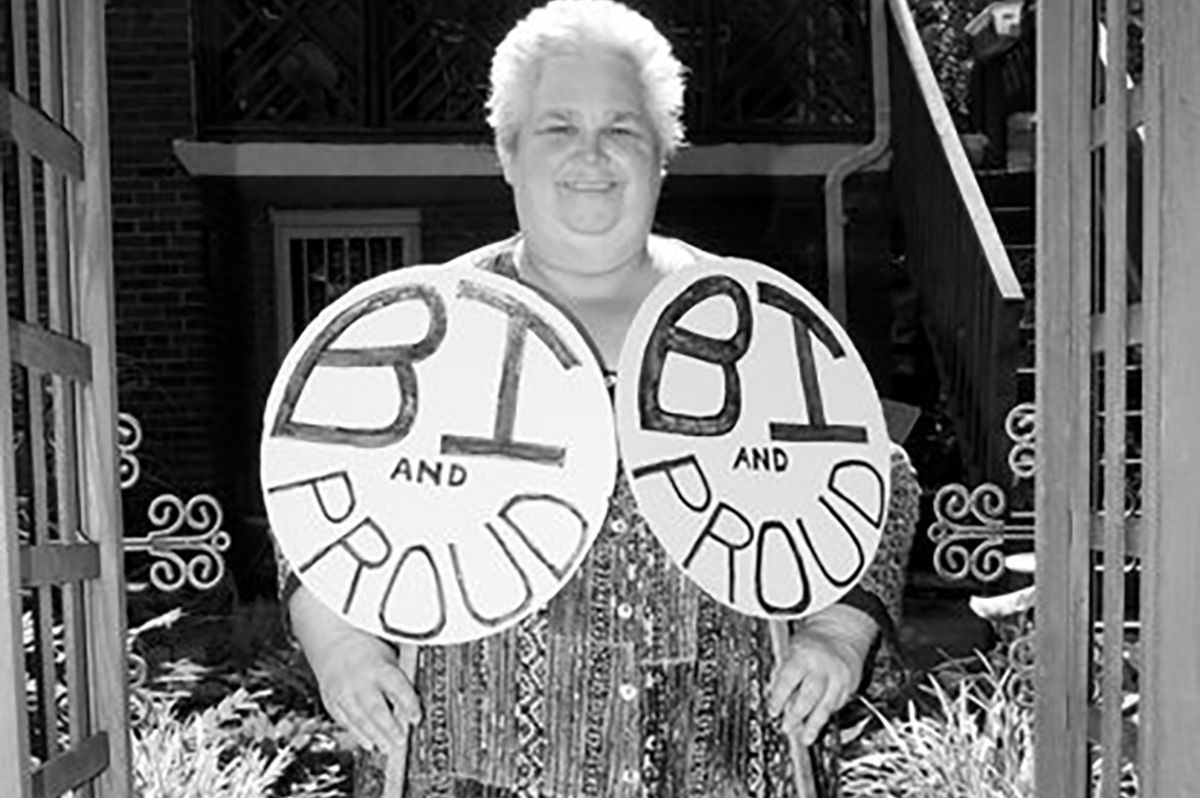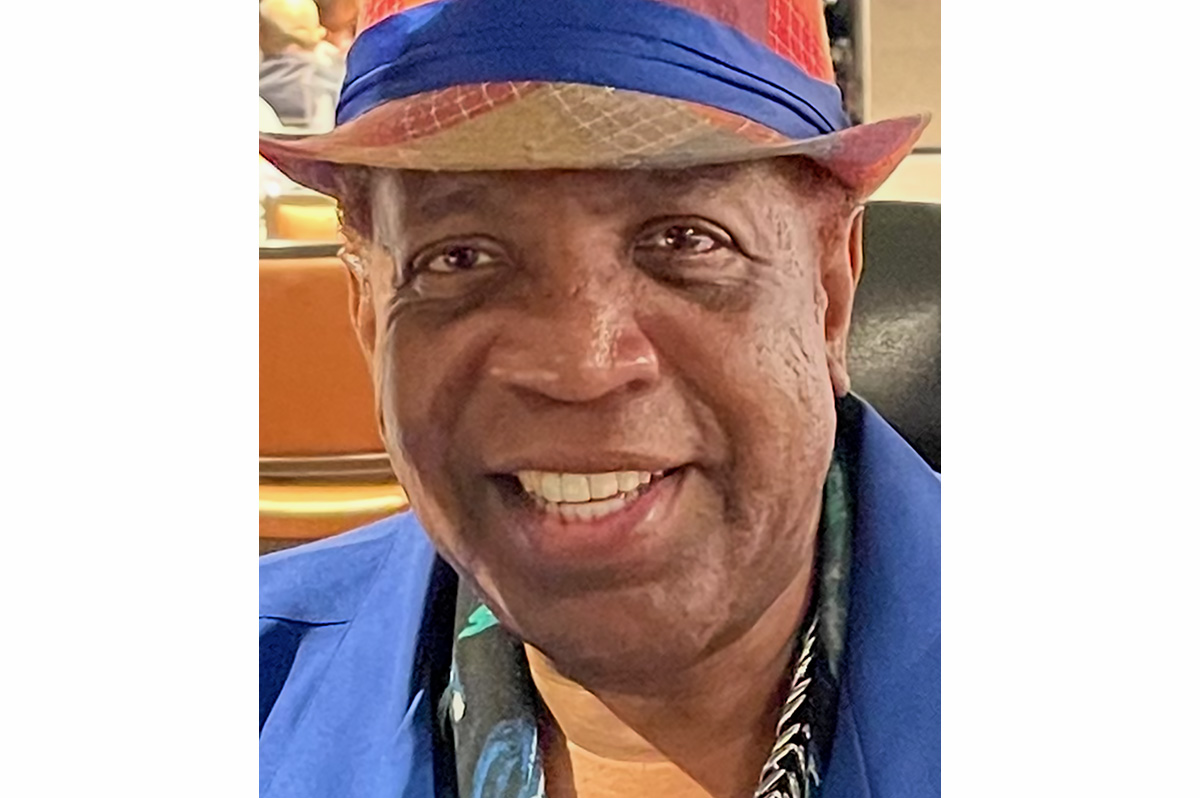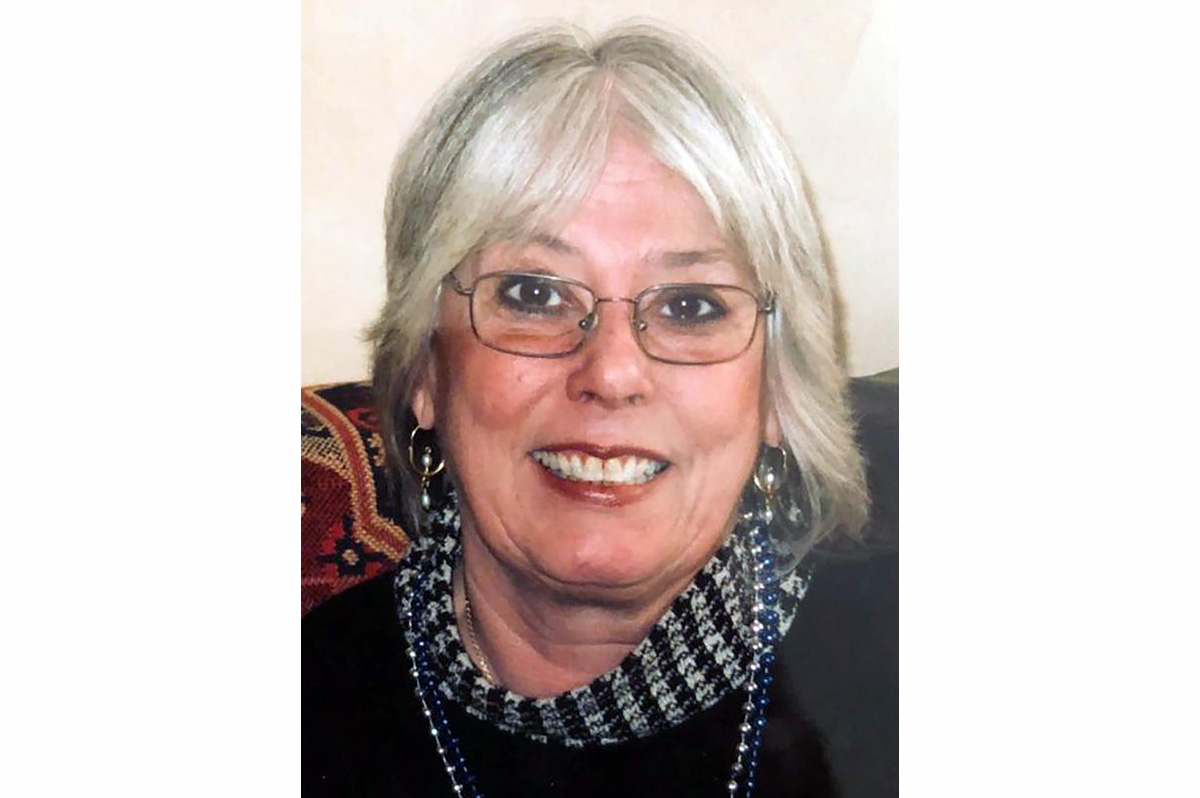Obituary
D.C. singer turned Broadway star Julia Nixon dies at 66
Beloved cabaret performer brought diverse communities together

Julia Nixon, a singer, songwriter, and actress who got her start singing at D.C. bars and nightclubs in the 1970s before becoming an internationally recognized vocalist who played the lead role in the Broadway musical “Dreamgirls” in 1983, died Sept. 29 at a hospital in Raleigh, N.C. of complications associated with COVID-19, according to her longtime D.C. friend Craig Henson. She was 66.
Henson said that when New York choreographer-director Michael Bennett selected Nixon to replace “Dreamgirls”’ original lead actress Jennifer Holliday, Nixon assured her loyal D.C. fans that she would return to D.C. after completing her run with “Dreamgirls.”
Sure enough, Henson said, Nixon did return to perform at Mr. Henry’s in Adams Morgan, where she got her start, as well as other D.C. nightspots, including Blues Alley in Georgetown and Mr. Henry’s on Capitol Hill.
But during those years in the mid-1980s through the mid-1990s and beyond, Nixon also performed as the opening act in shows headlined by some of the nation’s most famous singers and performers; including Stevie Wonder, Aretha Franklin and Tina Turner. She also accepted an invitation by the late comedian Richard Pryor to join him on a world tour as his opening act, which brought her to Tokyo, Paris, London, Russia and other international destinations.
Among the places she performed in the U.S. included New York’s Lincoln Center, Radio City Music Hall, and Carnegie Hall. In D.C. she had also performed at the Kennedy Center and the White House and performed several times on the main stage at D.C.’s annual Capital Pride celebration on Pennsylvania Avenue near the U.S. Capitol before throngs of her loyal LGBTQ fans.
Henson said he and countless other fans of Nixon faithfully turned out to the D.C. nightspots, where Nixon performed when she returned to D.C. in the mid-80s and early 90s.
“Washington was still a somewhat racially divided city back then and it was Julia who brought together both black and white, gay and straight at Mr. Henry’s throughout the 80s and early 90s and where Julia won over her life-long devoted fans,” Henson told the Washington Blade.
He said she did this while appearing weekly at the Mr. Henry’s in Adams Morgan before sold-out shows, which included two back-to-back shows each weekend evening.
“Her racially and sexually diverse audiences came from communities all over D.C., with the mayor and a City Council member in attendance, always ending in a thunderous standing ovation demanding an encore—and sometimes going two or three more,” Henson said.
In a June 2006 interview with the Washington Post, Nixon told of her decision to put her performing career on hold around 1995 to raise her then-8-year-old son in her home state of North Carolina. Henson said this took place at the time Nixon and her husband separated and later divorced.
“Julia retreated to her home base of Raleigh to raise her son near family,” Henson said. He said that around the early 2000s, her son Nicholas, who goes by the name Nikko, who was around 18 at that time, secretly contacted Dr. Phil McGraw, the popular TV psychologist whose “Dr. Phil” shows highlighted the lives of people in all walks of life.
Henson said Nikko urged “Dr. Phil” to consider doing a show about his mother and her talented career that was at the time on hold, and he agreed to do so. In early 2002 “Dr. Phil” had both Nixon and her son on an episode called, “How Do I Get My Career Back.”
“Following ‘Dr. Phil’, Julia had a comeback show recorded live at the Birchmere Music Hall in Alexandria to a sellout crowd of 500, ending with encore after encore,” Hanson said. “Her magic was back, and in the city where she launched her storied career.”
According to Henson, a short time later Black Entertainment Television arranged for Nixon to perform in a series of overseas concerts “representing American jazz music, winning over Russians, Europeans and South Americans with her amazing classically trained five octave voice.”
He was referring to Nixon’s studies in voice at the North Carolina School of the Arts, where she learned to sing opera. Henson also points out that Nixon’s father was a gospel singer at the family’s church in North Carolina, providing her with a strong background in yet another genre of music.
In 2006, Nixon won a Helen Hayes Award for her leading role as the character Caroline Thibodeaux in the Broadway musical “Caroline, or Change.”
Henson said recordings, including CDs, were made of some of Nixon’s popular songs, including a 1985 dance record “Breakin’ Down,” which became a hit in the U.K.; and a 2007 album called “Keeping on Track.”
A promotional announcement of Nixon’s return appearance at Mr. Henry’s on Capitol Hill for a Jan. 17, 2016, performance with her longtime piano accompanist Dave Ylvisaker and her son Nikki, who also accompanied her as a drummer, appeared to capture the sentiment of Nixon’s longtime fans as well as those who reviewed her performances.
“Upon first hearing Julia Nixon, you notice people sit up a little taller and smiles begin showing up all over the room,” the promotional announcement says. “Julia Nixon’s classically trained voice is as enchanting with a 120-piece orchestra, a jazz trio or singing on a stool unplugged in the crook of a grand piano. You can’t help falling in love with this singer.”
Nixon’s last performance in the D.C. area took place July 3 of this year at the Birchmere. Henson said she had plans to return once again to perform at Mr. Henry’s on Capitol Hill this fall.
“As fate would have it, or perhaps even Providence, her beginnings were with Mr. Henry’s as was her end—amongst those who loved her most,” Henson wrote in a statement to the Blade. “Julia was due to start back at Mr. Henry’s when COVID took her life,” he wrote.
“She once told me: ‘God gave me a voice to sing, and I’m going to use it until the day I die.’ Julia indeed fulfilled God’s intentions,” Henson wrote. “She will forever live in our hearts and souls. Thank you, Dear Julia, for the music, the love, the joy.”
Nixon is survived by her former husband, Chuck Nixon of Hyattsville Md.; her son Nicholas ‘Nikko’ Nixon of Raleigh, N.C.; and six siblings: James E. McGirt of Florence, S.C.; E. Albertina McGirt of Greensboro, N.C.; John E. McGirt of Rowland, N.C.; Gregory A. McGirt of Issaguah, Wash.; Cynthia O. McGirt of Raleigh, N.C.; and Lee E. McGirt also of Raleigh.
She is predeceased by her parents, John Neally McGirt and Julia Smith McGirt.
Information about funeral or memorial services have not been publicly announced by the family.
District of Columbia
Acclaimed bisexual activist, author Loraine Hutchins dies at 77
Lifelong D.C.-area resident was LGBTQ rights advocate, sex educator

Loraine Adele Hutchins, a nationally known and acclaimed advocate for bisexual and LGBTQ rights, co-author and editor of a groundbreaking book on bisexuality, and who taught courses in sexuality, and women’s and LGBTQ studies at a community college in Maryland, died Nov. 19 from complications related to cancer. She was 77.
Hutchins, who told the Washington Blade in a 2023 interview that she self-identified as a bisexual woman, is credited with playing a lead role in advocating for the rights of bisexual people on a local, state, and national level as well as with LGBTQ organizations, many of which bi activists have said were ignoring the needs of the bi community up until recent years.
“Throughout her life, Loraine dedicated herself to working and speaking for those who might not be otherwise heard,” her sister, Rebecca Hutchins, said in a family write-up on Loraine Hutchins’s life and career.
Born in Washington, D.C., and raised in Takoma Park, Md., Rebecca Hutchins said her sister embraced their parents’ involvement in the U.S. civil rights movement.
“She was a child of the ‘60s and proudly recalls attending Martin Luther King’s ‘I Have a Dream’ speech with her mother on the D.C. Mall,” she says in her write-up. “She was steeped in the civil rights movement, was a member of the Student Non-Violent Coordinating Committee, and was proud to say she had an FBI record.”
The write-up says Hutchins received a bachelor’s degree from Shimer College in Mount Carroll, Ill. in 1970, and a Ph.D. in 2001 from Union Institute. It says she was also a graduate of the Institute for the Advanced Study of Human Sexuality’s Sexological Bodyworkers certification training program.
The family write-up says in the 1970s Hutchins became involved with efforts to assist tenants, including immigrant tenants, in affordable housing programs in D.C.’s Adams Morgan neighborhood.
“In 1991, she co-authored the groundbreaking book, ‘Bi Any Other Name: Bisexual People SPEAK OUT’ with friend and colleague Lani Ka’ahumanu,” the write-up says. It notes that the acclaimed book has been republished three times and in 2007 it was published in Taiwan in Mandarin.
According to the write-up, Hutchins delivered the keynote address in June 2006 at the Ninth International Conference on Bisexuality, Gender and Sexual Diversity. In October 2009, D.C.’s Rainbow History Project honored her as one of its Community Pioneers for her activist work.
“Loraine is one of the few people who has explained, defended and championed bisexuality and made sure the “B” got into the LGBT acronym,” the Rainbow History Project says on its website in a 2009 statement. “Sensitivity to bisexual issues, civil rights, and social justice issues is Loraine’s life work,” the statement concludes.
The write-up by her sister says that up until the time of her retirement, Hutchins taught women’s and LGBT studies as well as health issues in sexuality at Montgomery Community College and Towson University in Maryland.
“She was a friend and mentor to many in the LGBTQ community,” it says. “She thoroughly enjoyed adversarial banter on the many topics she held dear: sexuality, freedom of speech, civil rights, needs and support of those with disabilities, especially in the area of mobility, assisted housing, liberal politics and many other causes,” it points out.
She retired to the Friends House community in Sandy Springs, Md., where she continued her activism, the write-up concludes.
Hutchins was among several prominent bisexual activists interviewed by the Washington Blade at the time of her retirement in June 2023 for a story on the status of the bisexual rights movement. She noted that, among other things, in her role as co-founder the organizations BiNet USA and the Alliance of Multicultural Bisexuals, she joined her bi colleagues in prodding national LGBTQ advocacy organizations to improve their advocacy work for bisexuals, which Hutchins said had been inadequate in the past but had been improving in recent years.
Hutchins is survived by her sister, Rebecca Hutchins; her husband, Dave Lohman; nephew, Corey Lohman and his wife Teah Duvall Lohman; and cousins, the family write-up says.
It says a private memorial service was scheduled for December and a public memorial service recognizing her contributions to the LGBTQ community will be held in the spring of 2026.
Obituary
Acclaimed disability rights advocate Thomas Mangrum dies at 61
Lifelong D.C. resident also served as ‘cherished’ Capital Pride volunteer

L. Thomas Magnum Jr., a lifelong D.C. resident, widely recognized and acclaimed advocate for people with disabilities, and LGBTQ rights activist involved in the city’s Capital Pride events, died Sept. 17 from complications related to stomach cancer. He was 61.
A statement released by Project ACTION!, a local disability advocacy organization for which Mangrum served for 15 years as co-president, says he worked for more than 20 years for the D.C.-based Maurice Electric Supply company before retiring in 2002 and devoting his efforts to disability-related projects and programs.
Phylis Holton, an official with the D.C. organization Quality Trust For Individuals With Disabilities and a longtime friend of Mangrum, said as a person with a developmental disability Mangrum devoted his life to supporting others with all forms of disabilities. She said that due to a separate spinal condition, Mangrum used a wheelchair for about 15 years prior to his passing.
Holton said Mangrum had a mild form of developmental disability, which the U.S. Centers for Disease Control and Prevention describes as “a group of conditions due to an impairment in physical, learning, language or behavior areas” that usually develops before a child is born during pregnancy.
Holton said Mangrum was an active member of Project ACTION! for 15 years prior to the 15 years he served as the organization’s co-president.
“He traveled nationally and presented at conferences, was featured on webinars and podcasts on a variety of topics related to self-advocacy, accessibility, equality, and more,” Holton told the Washington Blade in a statement.
“He shared his lived experience of being a Black man with a disability, and being gay, and how it impacted how he was treated in the community,” Holton said. “He was a strong advocate and co-facilitated trainings for independent advocacy organizations that Thomas supported and was a key advocate in their advocacy work,” she said.
Holton added, “He would answer a late request to train a group of attorneys, present at a meeting or testify before City Council or meet with an advocacy group to advance pending legislation that impacted people with disabilities.”
She said Mangrum also enjoyed participating in LGBTQ Pride events and last year traveled to the New York Pride events. According to Holton, he looked forward to participating in WorldPride 2025 events earlier this year in D.C. “but his illness prevented him from doing so.”
In a statement announcing Mangrum’s passing, Capital Pride Alliance, the group that organizes D.C.’s annual LGBTQ Pride events and served as the lead organizer of WorldPride 2025 in D.C., called Mangrum a “cherished volunteer” for D.C. Pride events.
June Crenshaw, the Capital Pride Alliance Deputy Director, said Mangrum served as a volunteer for D.C.’s LGBTQ Pride events “for many years” and was involved in many of the planning activities for WorldPride before his illness prevented him from participating in WorldPride earlier this year.
“He certainly in my interaction with him made me very aware of making sure that Capital Pride was thinking about accessibility always, and making sure that we had a welcoming, affirming accessible space for participants and staff with disabilities,” Crenshaw said.
In its statement on Mangrum’s career and accomplishments in life, Project ACTION! says he helped to advance the needs of people with disabilities through service on many boards and commissions. Among them were Lifeline Partnership, the D.C. Developmental Disabilities Council, the D.C. Center for Independent Living, the Washington Metropolitan Area Transportation Authority’s Accountability Advisory Committee, “and many more.”
“His leadership, passion, and unwavering commitment to equity and inclusion made a lasting impact on all who had the privilege to know and work alongside him,” the statement says.
It adds, “Thomas showed us the power of perseverance, courage, and the importance of standing together. His spirit will continue to guide us and strengthen our community for generations to come.”
A funeral for Mangrum was scheduled for Oct. 9, at D.C.’s Westminster Presbyterian Church at 400 I Street, S.W., with a viewing at 10 a.m. followed by a program at 11 a.m. A burial was scheduled to take place that same day at Heritage Memorial Cemetery at 13472 Poplar Hill Road in Waldorf, Md.
Holton said in lieu of flowers, donations may be made to Project ACTION! for a Celebration of Life and advocacy scholarship in Mangrum’s name. A date and location for the Celebration of Life for Mangrum was to be announced later, according to Project ACTION!
Obituary
Susan Xenarios, crime victim advocate, long-time LGBTQ ally, dies at 79
‘Susan was a force of nature, a mentor’

Susan Xenarios, LCSW, a visionary and dynamic leader of New York’s crime victim movement for 50 years and a courageous ally of the LGBTQ community, died on Sept. 6 in Manhattan. She was 79.
In 1974, an assailant held a knife to Ms. Xenarios’s throat and raped her on a rooftop in Upper Manhattan. At a time when few sexual assault victims spoke out, she began a lifelong, public campaign to improve the care and treatment of survivors and to reform laws and police procedures. Along with her high-profile advocacy, she never stopped counseling individual survivors of crime, pioneering breakthrough therapeutic interventions.
Ms. Xenarios led the creation of New York’s first program to provide assistance to survivors of sexual assault, the state’s first clinical program for male survivors, and the New York Sexual Assault Forensic Examiner (SAFE) Program, which ensures survivor-centered emergency room protocols, including evidence collection. She served as executive director of the Crime Victims Treatment Center in New York City for 40 years (1977 -2017).
Ms. Xenarios also was a driving force behind several state laws to advance the rights of crime survivors, including a 1993 law protecting the confidentiality of rape crisis center communications, the Hate Crimes Act 2000, which included enhanced penalties for hate-motivated crimes, including anti-LGBTQ assaults, and the 2015 “Enough is Enough” law, one of the first laws in the nation to require all colleges to adopt a set of comprehensive procedures for addressing sexual violence on campuses.
“Susan was a force of nature, a mentor, an extraordinary ally to the LGBT community, and a dear friend,” said Bea Hanson, director of the New York State Office of Victim Services, principal deputy director of the federal Office on Violence Against Women during President Barack Obama’s administration (2011-2017), and director of client services of the New York City Gay and Lesbian Anti-Violence Project (1991-1997). “She was a leader in advocating for the rights of sexual assault survivors and all crime victims. She spoke truth to power with a smile on her face and love in her heart. She will be missed.”
“Susan was the greatest champion and friend of LGBT victims of crime there ever was or ever will be,” said Matt Foreman, former executive director of the NYC Gay and Lesbian Anti-Violence Project (1990-1996) and the Empire State Pride Agenda (1996-2003). “She was one of the first to recognize the prevalence of sexual assault against men and she created the first program to help male survivors. When there was enormous pressure to pass a hate crimes law that did not include anti-LGBT offenses, she made sure the larger movement did not abandon us. She understood the harmful effects of having terms like ‘sodomy’ and ‘deviate sexual intercourse’ in New York State law and led the successful drive to purge them from the books. She was so genuinely warm and supportive, I was shocked when I learned that she wasn’t a lesbian.”
A memorial service will be held on Saturday, Sept. 20, at 11 a.m. at West End Collegiate Church, 245 W. 77th St. in Manhattan.
-

 Sponsored4 days ago
Sponsored4 days agoSafer Ways to Pay for Online Performances and Queer Events
-

 District of Columbia3 days ago
District of Columbia3 days agoTwo pioneering gay journalists to speak at Thursday event
-

 Colombia3 days ago
Colombia3 days agoBlade travels to Colombia after U.S. forces seize Maduro in Venezuela
-

 a&e features3 days ago
a&e features3 days agoQueer highlights of the 2026 Critics Choice Awards: Aunt Gladys, that ‘Heated Rivalry’ shoutout and more




















